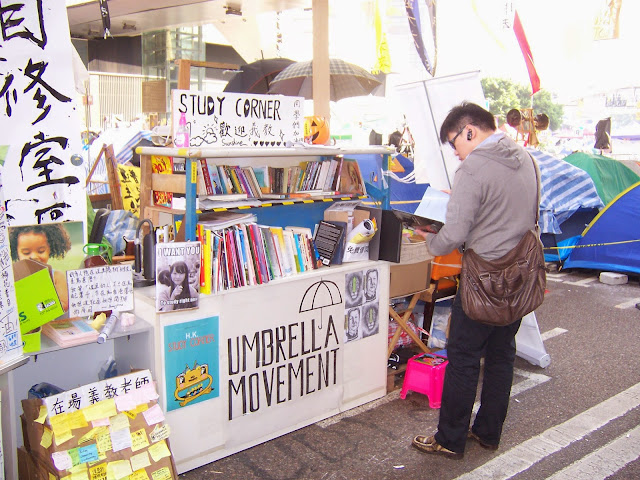
Hong Kong has lots of beautiful parks, including this one (Hong Kong Park) where you can also visit the Museum of Tea Ware. I really enjoyed visiting Hong Kong and it reminds me a lot of another favorite city of mine -- NYC.

An early-morning tai chi class on Hong Kong's East Promenade, near Victoria Harbor.


I also had a chance to take the 1-hour ferry from Hong Kong to Macau. In 1999, Macau was returned to China by the Portuguese, and it's largely known for its gambling. As my guidebook states, though Macau's often referred to as the Vegas of the East, "it might be more appropriate to put that the other way around."

Many Chinese love Macau, and on this particular Sunday it seemed like half the country was here visiting.

One of the displays at the Macau Museum was about cricket fighting. The first time I'd heard of this was just a few weeks ago at a museum in China. As part of the Macau display, there is also a cricket coffin (used at funeral ceremonies for champion fighters) and an engraved stone memorial for the cricket's grave.




















































